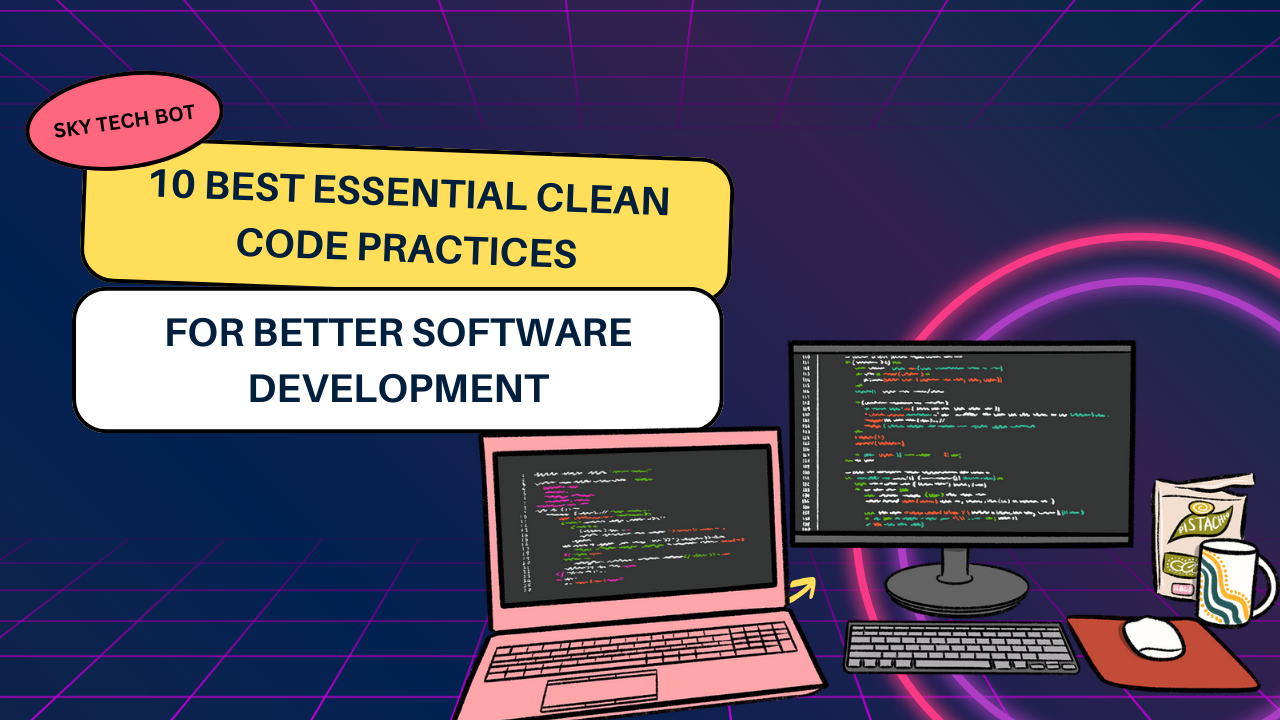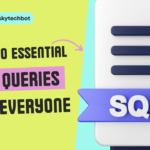As developers, our primary job isn’t just to make software that works—it’s to make software that others can work on too. Writing clean and efficient code is an art, a discipline, and a habit that separates good developers from great ones. It’s about creating code that’s not just functional but also understandable, maintainable, and scalable.
In this blog, we’ll explore the essential practices that can help you write clean code, making life easier for you and everyone else who touches your work.
1. Use Meaningful Variable and Function Names
Clear and descriptive naming is the foundation of clean code. Your code should tell a story, even to someone who hasn’t worked on it before.
Bad Example:
def cal(a, b):
return a + b
Good Example:
def calculate_sum(number1, number2):
return number1 + number2
2. Write Comments Sparingly and Effectively
Comments are helpful, but only when they add value. Use them to explain why the code exists, not what the code does—good code should be self-explanatory.
Avoid:
# Incrementing i by 1
i += 1
Use:
# Adjusting the index to start from 1 for user-facing data
index += 1
3. Follow Consistent Coding Standards
Adopting a consistent coding style across your projects makes your code easier to read and maintain. Use tools like Prettier or ESLint to enforce standards automatically.
4. Refactor Regularly
Refactoring ensures that your code doesn’t become bloated over time. Break large functions into smaller, reusable ones, and remove any redundant code.
Before Refactoring:
def process_data(data):
# Process data
if len(data) > 100:
return "Too much data"
else:
return "Processed"
After Refactoring:
def validate_data(data):
return len(data) <= 100
def process_data(data):
if not validate_data(data):
return "Too much data"
return "Processed"
5. Test Your Code
Testing isn’t optional; it’s essential. Write unit tests to ensure each function behaves as expected. It reduces bugs and saves debugging time later.
6. Avoid Hardcoding Values
Hardcoding makes your code inflexible and harder to maintain. Use constants, environment variables, or configuration files instead.
Hardcoded:
url = "http://example.com/api"
Flexible:
url = os.getenv("API_URL")
7. Optimize for Performance
Always aim to write code that’s not just functional but also efficient. Choose appropriate data structures and algorithms for your use case.
Example: Use dictionaries over lists for lookups to save time complexity.
8. Keep It DRY (Don’t Repeat Yourself)
Repetition in code leads to inconsistencies and increases maintenance efforts. Use reusable functions, classes, or modules.
Repeated Code:
def calculate_area_circle(radius):
return 3.14 * radius * radius
def calculate_area_square(side):
return side * side
Refactored:
def calculate_area(shape, dimension):
if shape == "circle":
return 3.14 * dimension * dimension
elif shape == "square":
return dimension * dimension
9. Use Version Control Effectively
Version control systems like Git are invaluable for tracking changes and collaborating with others. Use clear commit messages like:
- Refactored user authentication module for scalability.
10. Meaningful Error Handling
Error messages should be clear and actionable. Don’t leave your users guessing what went wrong.
Example:
try:
file = open("data.txt", "r")
except FileNotFoundError:
print("Error: The file 'data.txt' was not found.")
Benefits of Clean Code
Easy Maintenance: Debugging and updating are straightforward with organized code.
Collaboration-Friendly: Your teammates will thank you for making your code readable.
Reduced Errors: Clean code means fewer bugs and smoother testing.
Scalability: Adapt your code to future needs with minimal effort.
Professional Growth: Clean coding practices are a hallmark of skilled developers.
Writing clean and efficient code isn’t a luxury; it’s a necessity for long-term success in software development. It saves time, fosters collaboration, and ensures that your projects stand the test of time.
Start applying these practices today and experience the transformation in your coding journey!


